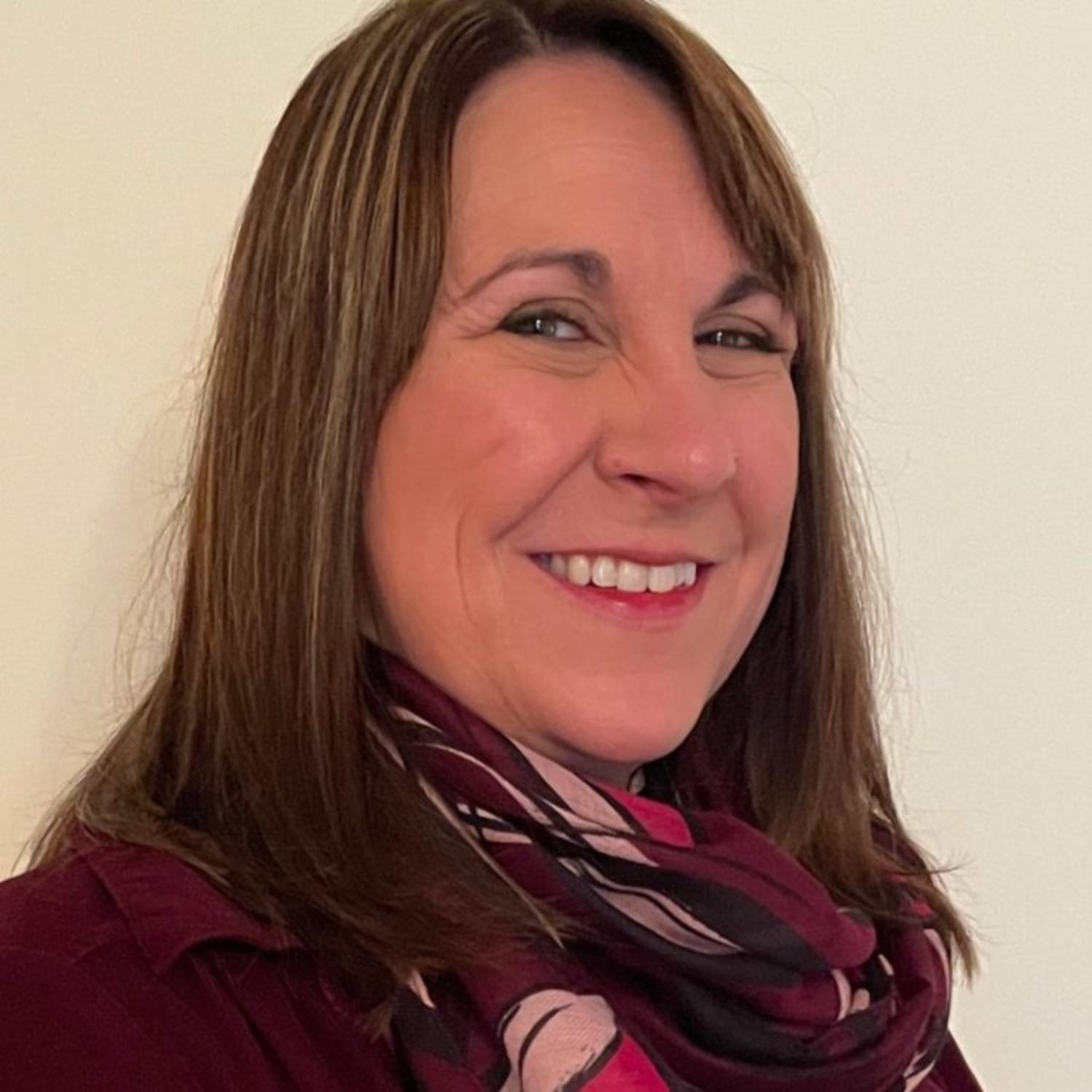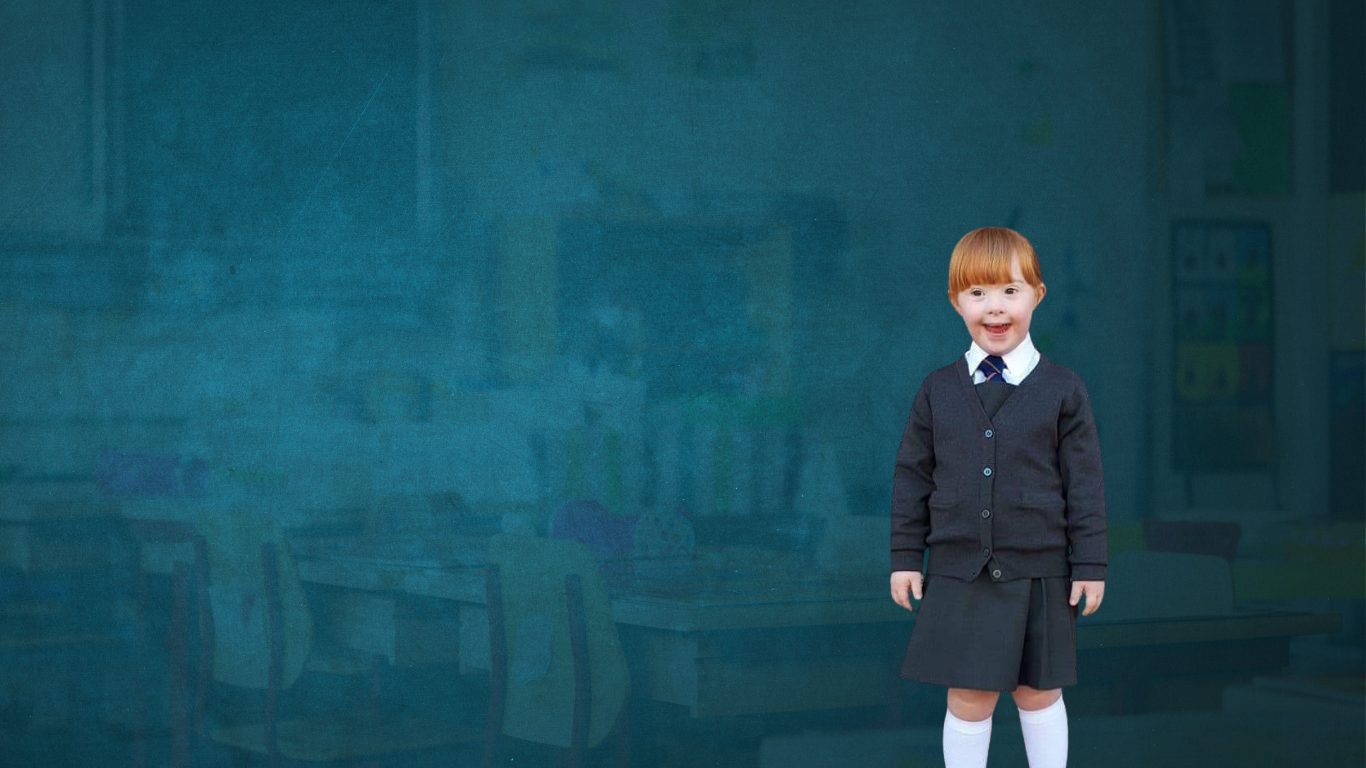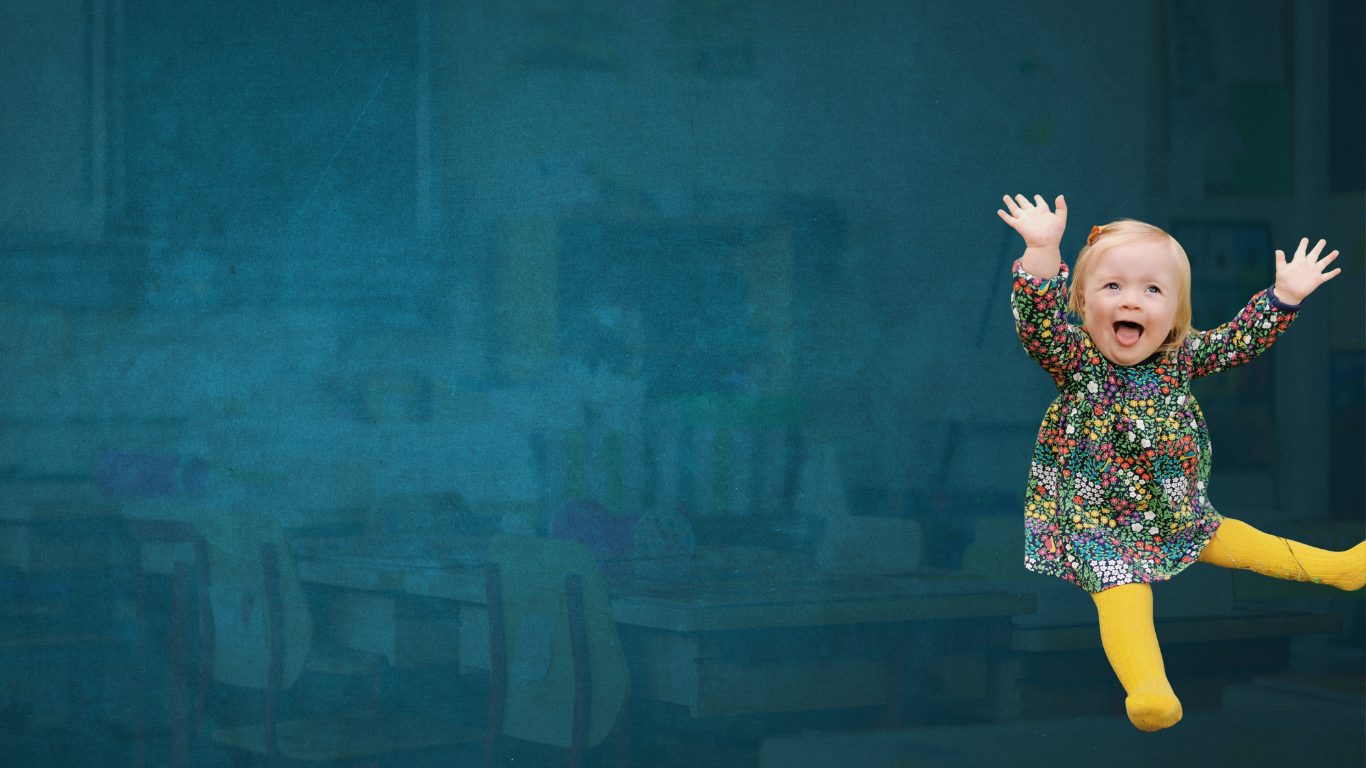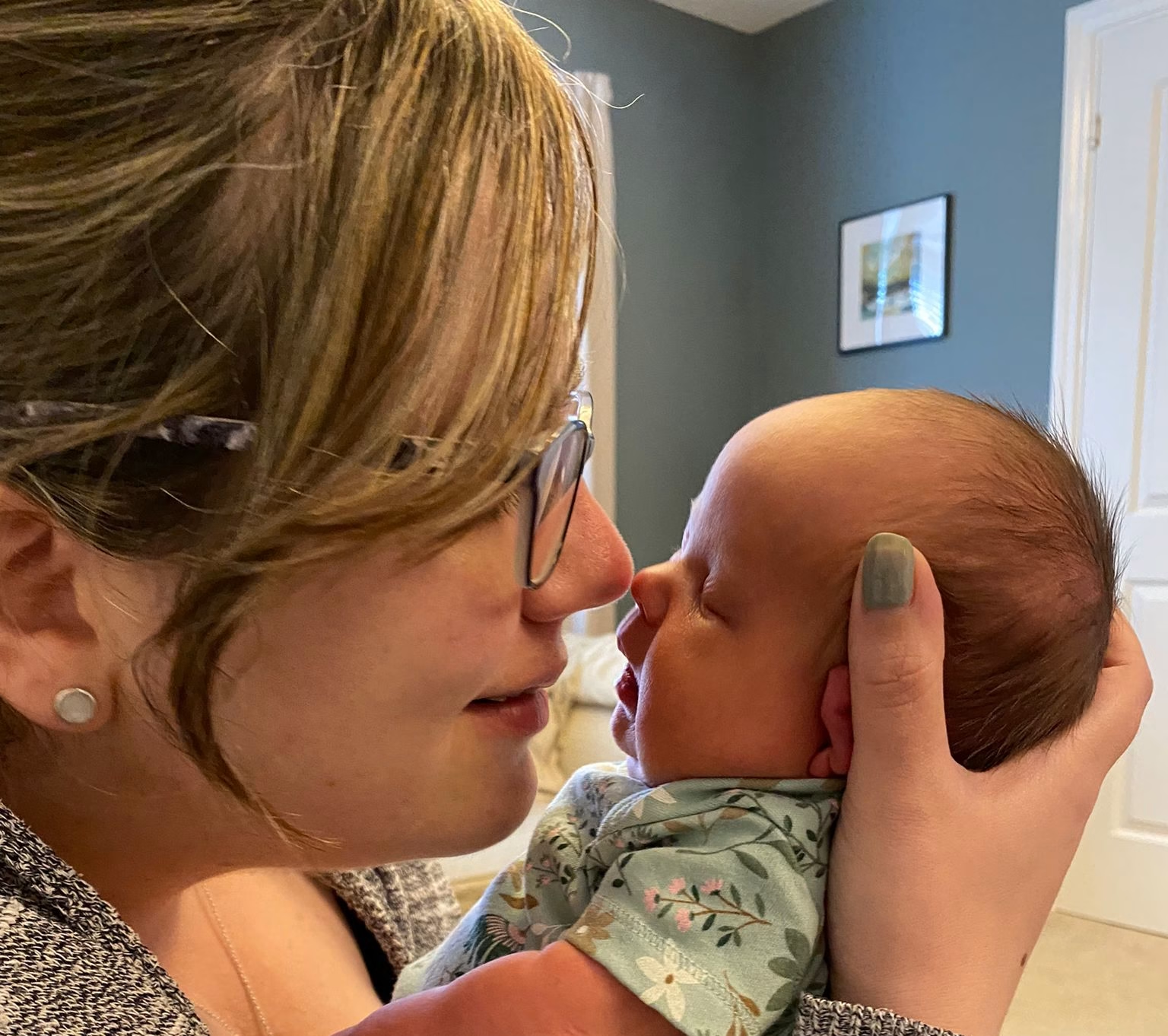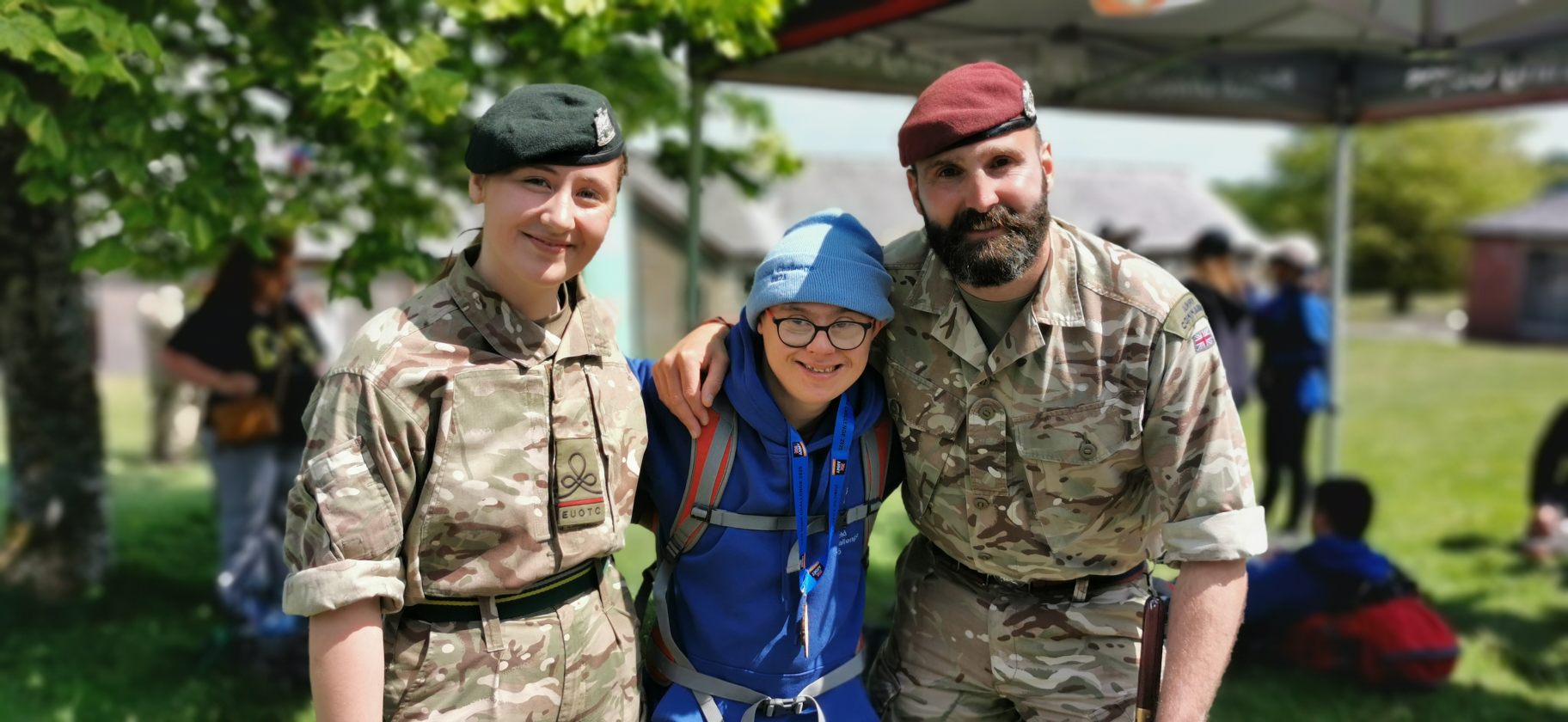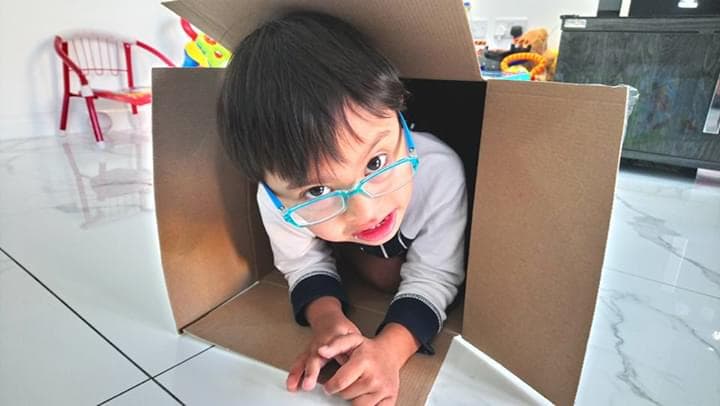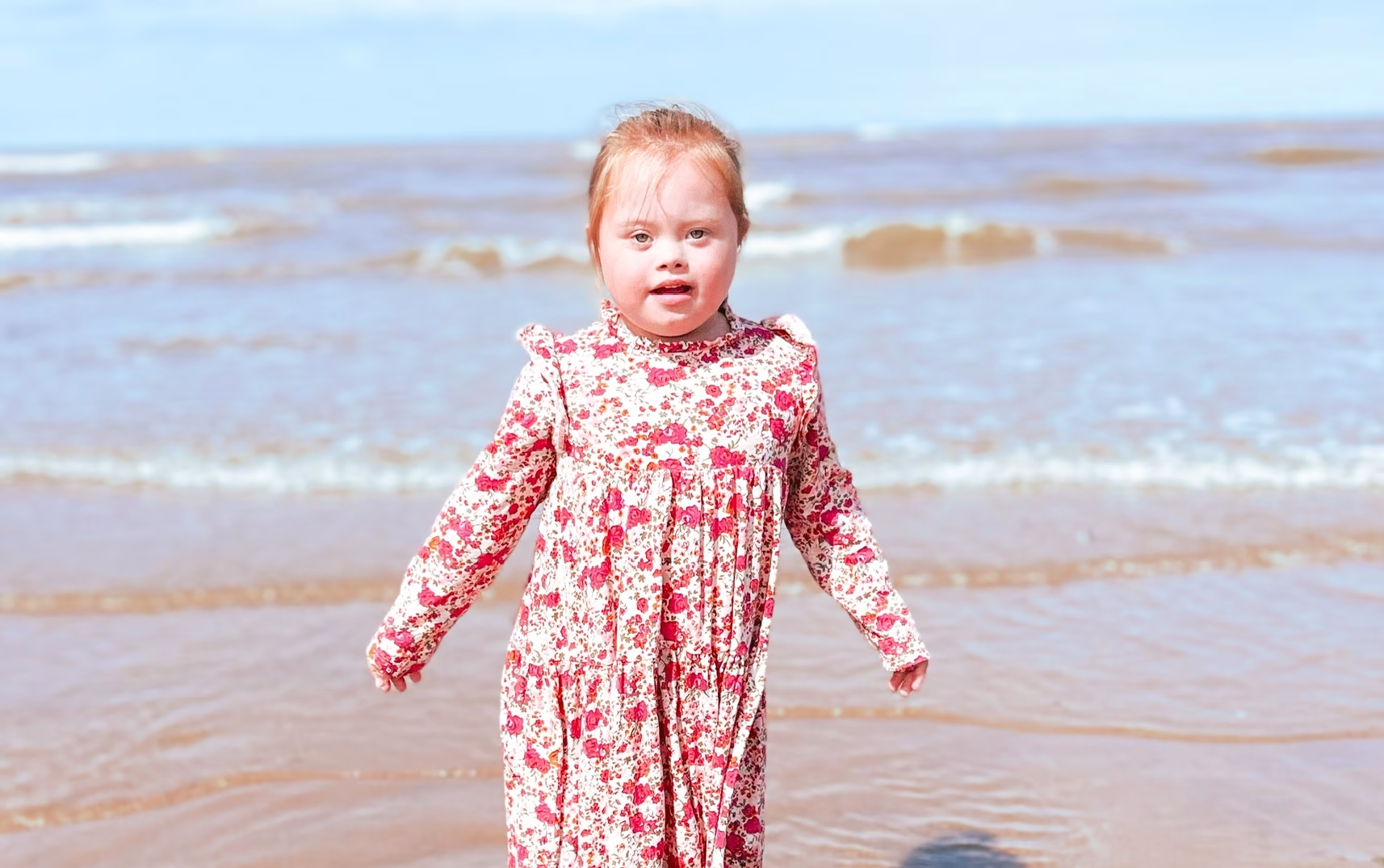Supporting Speech, Language and Communication in Early Years settings
- by Dr Rebecca Baxter
Speech, language, and communication are at the heart of children’s learning and development. For children with Down syndrome, these areas can present particular challenges, but also areas of great potential.
Communication: supporting social interaction
Children with Down syndrome typically enjoy social interaction and engaging with people. You may notice children copying your own communication style or quickly learning what makes others respond to them. All children use non-verbal communication (e.g., pointing, showing, gesturing, facial expression) and children with Down syndrome generally rely on non-verbal communication methods for much longer including more formal methods such as signing and the use of pictures.
Top tips for supporting communication
- Provide communication supports (such as visuals, signs and prompts) throughout preschool years (and school).
- Actively teach children to use communication supports.
- Encourage and support peer interaction and play with friends.
- Avoid being too helpful – give space for the child to initiate.
Speech: Promoting the speech sound system
One of the biggest challenges for children with Down syndrome is speech; impacting speech development, intelligibility and clarity. Speech development is typically behind understanding, particularly in the preschool years. This means children are likely to know and understand much more than they can say.
How to support speech development:
- Start speech work early and continue throughout nursery.
- Use symbolic sounds, sound cards, and sound books to promote early speech development.
- Practice syllable marking (both listening to and marking the syllables in words).
- Adapting and supporting games like ‘I Spy’ and sound sorting activities are. playful ways to highlight the sounds of language.
Language: Developing vocabulary and grammar
For children with Down syndrome, receptive language (what the child understands) is typically ahead of expressive language (what the child can express through speech or other methods such as sign). Vocabulary drives language – you need a number and range of words to start to master two-word combinations. Receptive and expressive language need clear targets and these targets may be at different levels.
How to build vocabulary
- Keep a record of new words (a diary or word list).
- Choose target words that are relevant and motivating.
- Use repetition and practice in different contexts.
- Explore categories (such as food, animals, actions) to widen the child’s vocabulary range.
- Provide visual supports such as signs and/or print to strengthen memory.
How to encourage word combining and early grammar
- As vocabulary develops, encourage appropriate two- and three-word phrases in everyday routines.
- Remember the receptive-expressive gap – the child may be working on saying single words but understanding two or even three key word phrases.
- Model short, clear sentences the child can copy, filling in any missing grammar.
- Consider early grammar – function words like ‘the’ and ‘is’ and grammatical markers such as plurals, possessives, and tense markers are often especially tricky and can be targeted as vocabulary and word combination targets are met.
A final word
By including these communication support strategies into your daily routines and targeting speech and language development, you can help children with Down syndrome to express themselves, connect with others, and thrive in learning.
Need extra support?
Our Early Years Development Programme has been designed to equip early years professionals with the training, information and resources to support children with Down syndrome. Sign up today to start accessing the programme.
Share this post
Author
 Director of Education and Speech and Language Therapy
Director of Education and Speech and Language TherapyDr. Rebecca Baxter as our Director of Education and Speech and Language Therapy. Becky is a speech and language therapist who specialises in Down syndrome and has worked with babies through to young adults with Down syndrome. Becky is also involved in a number of research projects across speech, language and education issues associated with Down syndrome. Becky completed her PhD in 2023 at University College London, which involved developing and evaluating a language intervention for children with Down syndrome. Becky is passionate about supporting speech and language therapists and is currently chair of the Down Syndrome Clinical Excellence Network. She has delivered training to speech and language therapists across the UK and internationally.
View all posts


